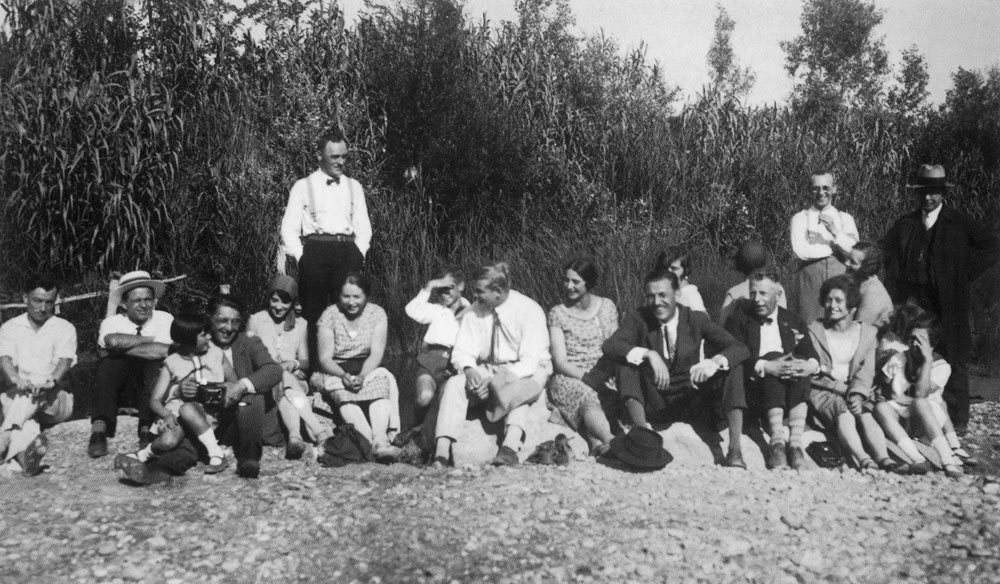By Charles Marsh | March 20, 2023
Dietrich Bonhoeffer preached his first sermon in Barcelona on March 11, the second Sunday of Lent 1928. He chose Romans 11:6 as his scriptural text: “And if by grace, then it is no more of works: otherwise grace is no more grace.” This verse, like the whole of St. Paul’s letter to the churches in Rome, was ever dear to German Protestants. The Lutheran Reformation of the sixteenth century turned on the epistle’s theme of salvation sola gratia—coming to sinners through grace alone, a gift by no means deserved by reason of any works, and certainly not owing to any priestly mediation.
There was a palpable intensity to the sermon that seems to have taken some listeners by surprise, at least those who knew the pastor only from informal exchanges. We see Bonhoeffer reaching for a lived faith, beyond the dualisms of sacred and profane, spirit and body, earth and heaven. Karl Barth had written that the Christian should be more humanist than the humanist, more romantic than the romanticist, but alas more precise than either—a humanism clustering around the story of the Word made flesh. And precision is the proper ordering of doctrine and belief. Like Barth, Bonhoeffer interprets the human condition in the light of the incarnation, the “great event” when God assumed human form in Jesus of Nazareth, and, as described in the Gospel of John, “We beheld his glory, the glory as of the only begotten of the Father, full of grace and truth.” But Bonhoeffer was seeking the precise terms for a lived faith in the here and now, hungering, as he said in the sermon, for “eternity in the midst of time.”
To be sure, the doctrine of sola gratia, that God alone forgives, justifies, and saves undeserving sinners, was the essential message of the Christian faith, at least in its Lutheran form. “If there is anything at all on this earth that, however seriously it may present itself, is not ultimately trivial or even comical, it is the fact of justification.” But to apprehend the doctrine without its changing one from the inside—without experience of a metanoia, a spiritual change of heart—would be to trivialize God’s redemptive acts. Bonhoeffer wanted to awaken the congregation to the wonder and joy of the “new creation,” the universe as redeemed when God took flesh.
“Through [justification] our gaze is opened on the entire world,” he told them. “On that which is vain and that which matters; in [that state] we understand both ourselves and … God.” Let us open ourselves to the full force of the “great disruption” – attuned to the repercussions of power of God’s merciful gift. Justification was ontological fact before ever being expressed as doctrine. Grace frees and forms, grace invites and involves.
Bonhoeffer also spoke of the unquiet soul described famously by St. Augustine in The Confessions: “You have made us for Yourself, O Lord, and our hearts are restless, until they find their rest in Thee.” Throughout his life, sometimes at the prodding of others—more often, though, of his own accord—Bonhoeffer would agitate against the Lutheran habit of reducing the self to an empty vessel into which God poured his grace. To be sure, the spectacular anguish that Martin Luther, as a new monk, had felt at his own insufficiency—the crushing weight of fear before his encounter with the God of infinite mercy—seemed to Bonhoeffer unsustainable in the languor of a semitropical paradise – he fallen under the spell of the sun and sea and the fragrance of lemon and almond trees – he was, in any case, nowhere near such an extreme.
So it was, then, that in several of the seventeen sermons preached during his year in Barcelona, his efforts to focus and inspire would follow not the Reformer of Wittenberg but the fourth-century Bishop Augustine of Hippo, the impulse not one of guilt or shame but rather sparked by the intimations of mystery everywhere abounding.
“’Restless’: this is the word that concerns us,” Bonhoeffer said. “Restlessness is the characteristic distinguishing human beings from animals.
Restlessness is the power that creates history and culture.
Restlessness is the root of every spirit that uplifts itself toward morality; restlessness is—let us go ahead and say it—the most profound meaning and the lifeblood of all religion.
Restlessness—not in any transitory human sense, in which all we find is nervousness and impatience—no, restlessness in the direction of the eternal … pointing toward the infinite.”
Restlessness is the very condition induced by what he called “the great disturbance” and “the great disruption” occasioned by awareness of God, the source of freedom and movement.
Guilt immobilizes and fear hollows out, but restlessness and desire open the self to God.
Compared with the formal rigors of the doctoral dissertation, the Barcelona sermons are both literary and uninhibited. Bonhoeffer found writing them a great liberation, for the exercise drew on his musical gifts and artistic intuitions. Indeed the lyrical and expressive sermons from Spain are among his most beautiful writings. A mystical current guides the pen. He would say that he felt as if “a theology of … spring and summer” was replacing “the Berlin winter theology”.
Charles Marsh, Strange Glory, Knopf, 2014, pp. 70-72.

